Latest Streamr News
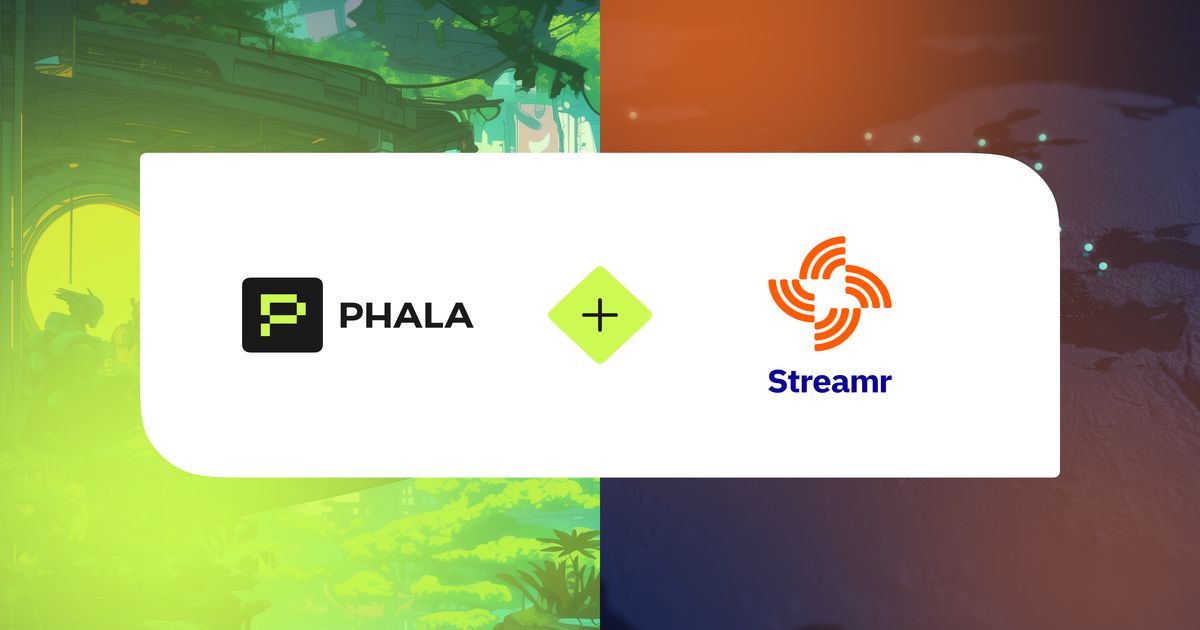
2 months ago
Phala Network and Streamr Join Forces to Revolutionize Decentralized AI
Phala Network and Streamr have announced an exciting new partnership aimed at revolutionizing the landscape of decentralized AI. This collaboration merges Phala's trusted computing infrastructure with Streamr's decentralized, real-time data streaming capabilities. The goal is to create a new class of AI agents that can process live data securely and privately, without relying on centralized intermediaries. By combining these technologies, the vision of real-time, decentralized AI is becoming a reality, paving the way for innovative applications in various sectors.
Streamr operates on a decentralized network specifically designed for real-time data streaming, utilizing a peer-to-peer architecture and a publish/subscribe model. This structure allows data producers to broadcast streams that can be instantly consumed by applications and nodes, significantly reducing latency and enhancing resilience. The integration of blockchain technology within Streamr supports monetization and access control through its native DATA token, fostering a robust open data economy for Web3 applications. This partnership emphasizes a shared mission to create a more open and user-controlled web, moving away from reliance on traditional cloud services.
The collaboration leverages Phala's Trusted Execution Environments (TEEs) and Phat Contracts, which provide secure, encrypted enclaves for AI computations. This ensures that even the machine's owner cannot access the data or logic, creating a strong foundation for verifiable AI computation. By integrating Streamr's real-time data delivery with Phala's secure compute layer, developers can create AI systems that process live data while preserving privacy and resisting censorship. This partnership not only showcases the potential of decentralized infrastructure but also opens new avenues for developers to build innovative AI solutions aligned with the core values of Web3—privacy, transparency, and decentralization.
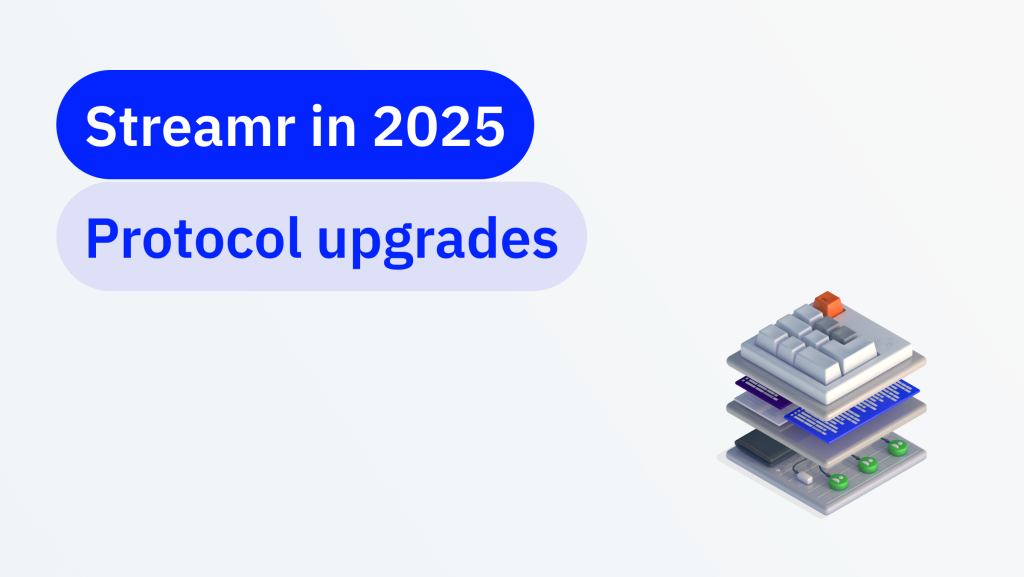
3 months ago
Streamr Unveils Protocol Upgrades for Enhanced Security, Usability, and Scalability
In a recent update, Streamr has announced significant protocol upgrades aimed at enhancing security, usability, and scalability within its decentralized data streaming network. These upgrades are essential as the platform evolves from a middleware solution to a forefront technology that promises to revolutionize data streaming. The focus on security includes the introduction of quantum-resistant streaming, which is crucial for safeguarding data against potential future threats posed by quantum computing. This feature is particularly relevant for sensitive applications in government and military sectors, ensuring that data remains secure even as quantum capabilities advance.
To improve usability, Streamr is investing in native language bindings, flexible data validation, and a multichain architecture. The development of native SDKs has already achieved significant milestones, allowing for enhanced data publishing capabilities across various programming languages. Additionally, the support for arbitrary publisher identities and integration with diverse cryptographic systems will facilitate new partnerships and broaden the network's applicability. The multichain architecture further enables projects to operate on their preferred blockchain while benefiting from Streamr's decentralized data transport, thus promoting wider adoption.
Scalability remains a critical focus for Streamr, especially as the demand for real-time applications grows. Landmark benchmark tests have demonstrated the platform's ability to maintain low latency and quick data retrieval, even in a decentralized environment with numerous nodes. With the results of these tests set to be published in early 2025, Streamr aims to solidify its position as a leader in decentralized data streaming. As the network approaches its first anniversary, the commitment to continuous research and development promises a bright future for secure, scalable, and decentralized data solutions in a multipolar world.

3 months ago
Streamr's Vision for 2025: A Decentralized Future
As we approach 2025, Streamr is set to undergo a significant transformation, evolving from a background infrastructure provider to an open platform for freedom technology applications. This shift aims to leverage the decentralized data network, allowing Streamr applications to coexist within a broader ecosystem that enhances network effects for all participants. The focus is on creating a community-owned network that prioritizes data sovereignty, offering a stark contrast to the monopolistic platforms that dominate the digital landscape today. Streamr envisions a future where freedom tech is not just a niche but a fundamental aspect of the free Internet, positioning itself as the nervous system of this new paradigm.
One of the standout features of Streamr's evolution is the introduction of StreamrTV, a pioneering consumer-facing web application that will enable users to broadcast live video through a fully decentralized data network. This initiative is set to launch in the first half of 2025 and represents a significant milestone in demonstrating the capabilities of decentralized freedom technology. Unlike traditional applications, Streamr apps will rely on the Streamr Network for their core functionalities, emphasizing real-time communication and live streaming as foundational elements. This approach not only showcases the potential of decentralized applications but also aims to provide seamless, real-world experiences for users.
The role of the DATA token is also evolving within the Streamr ecosystem, serving as a utility token that powers decentralized data streaming and project governance. Users can stake DATA to discover content, access premium features, and contribute to network effects while earning tokens in the process. This dual approach to value capture at both the protocol and application levels ensures that incentives are aligned among node operators, developers, and the broader community. As Streamr prepares for a year of bold moves and ambitious goals, it invites everyone to participate in shaping the future of decentralized streaming, highlighting the importance of community engagement in this transformative journey.

4 months ago
Weaver Labs Updates Roadmap for Adeno Token in 2025
In the rapidly evolving telecommunications sector, innovation often faces significant hurdles. Despite the potential of blockchain technology to revolutionize network infrastructure, many decentralized projects, such as Helium and XNET, have had to pivot from ambitious plans involving 5G deployment to more traditional solutions like Wi-Fi. These shifts highlight the industry's resistance to change and the challenges of integrating new technologies into existing frameworks. As companies like Nova Labs' Helium network adapt to user experience and implementation difficulties, the need for a pragmatic approach becomes clear, especially for startups like Weaver Labs, which is focused on creating an open marketplace for telecom infrastructure through its Adeno Token.
Weaver Labs recognizes the slow pace of change within the telecom industry, particularly regarding shared infrastructure and open networks. The company's updated roadmap for 2025 emphasizes practical steps that align with current market realities while maintaining a long-term vision. Unlike many DePIN projects that struggle with product-market fit, Adeno aims to empower existing telecom networks rather than disrupt them. By integrating with current infrastructure through its Network-as-a-Service (NaaS) model, Adeno seeks to create a sustainable ecosystem where token use is driven by real-world demand rather than speculation.
Looking ahead, Weaver Labs plans to list the Adeno Token on centralized exchanges in 2025, focusing on private telecommunications networks and testing new use cases that leverage blockchain technology. Collaborations with partners like Streamr and Liquid aim to enhance data transmission and infrastructure sharing, particularly in underserved regions. By prioritizing partnerships and practical applications, Weaver Labs is positioning itself to navigate the complexities of the telecom landscape while fostering a community that supports the future of decentralized telecommunications.
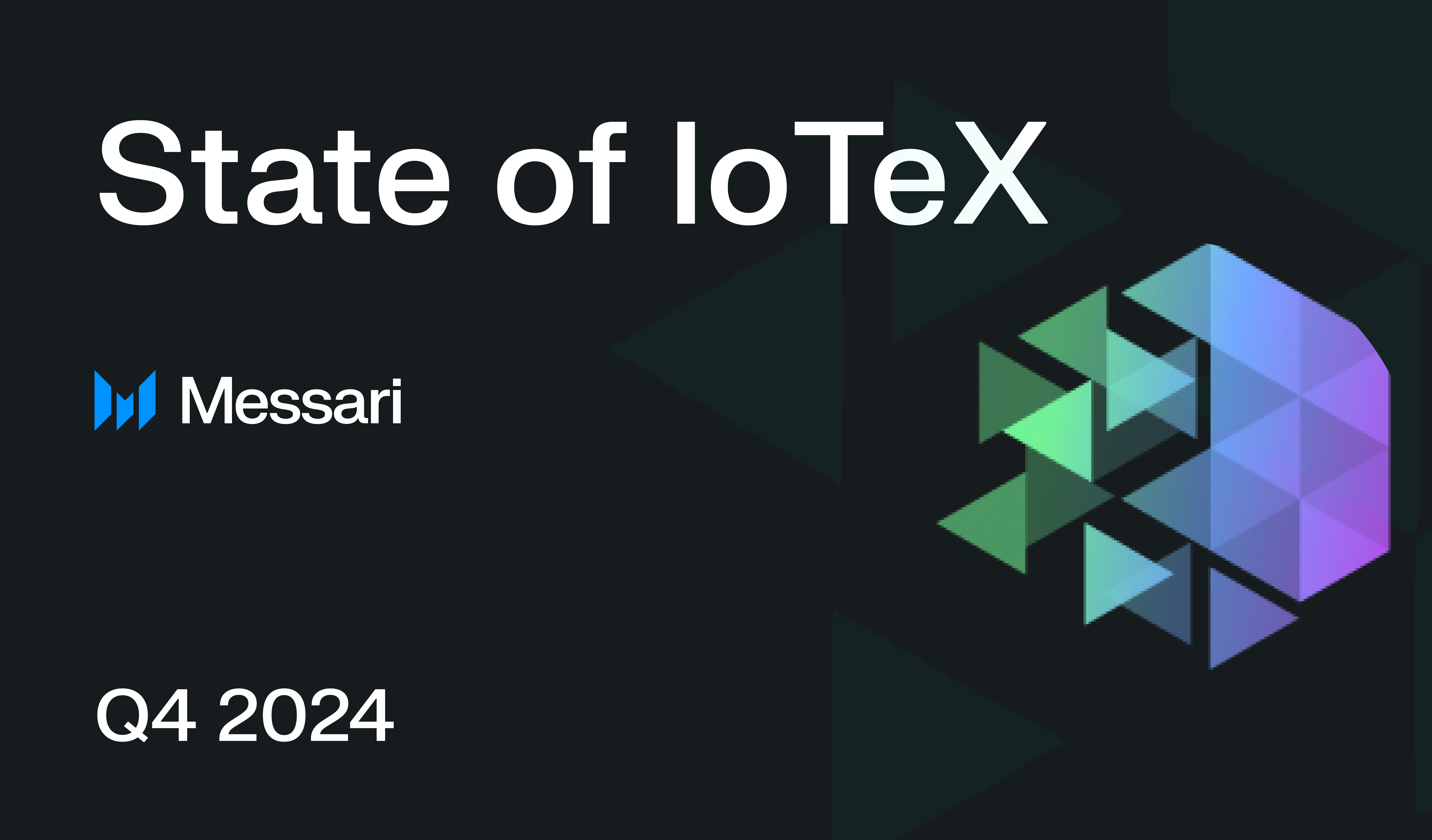
4 months ago
IoTeX 2.0 Launch Drives Record Growth and AI Integration
In the fourth quarter of 2024, IoTeX experienced remarkable growth following the launch of its 2.0 version, with average daily transactions skyrocketing by 1,267% quarter-over-quarter (QoQ) to reach 384,300. This surge was complemented by peak throughput hitting 62 transactions per second (tps). The total fees accrued on the IoTeX Network also saw a significant increase of 205% QoQ, amounting to $448,500, driven largely by a staggering 1,600% rise in gas fees and a 690% increase in decentralized exchange (DEX) fees, primarily from activity on Mimo. The introduction of the ioID protocol, which provides a universal onchain identity solution for smart devices, has played a crucial role in this growth by enabling verifiable device identities and enhancing user engagement in the decentralized physical infrastructure networks (DePIN) ecosystem.
IoTeX has also made strides in integrating artificial intelligence (AI) into its platform with the launch of BinoAI, an autonomous agent built on the ELIZA framework. This development is part of a strategic partnership with Eliza Labs, aimed at creating AI agents that can perceive and interact with physical environments using DePIN data. Additionally, the release of Quicksilver, a middle-layer framework, facilitates the connection between DePIN data and AI agents, allowing for real-time data processing and adaptive responses. These innovations position IoTeX as a leader in the convergence of AI and DePIN, potentially transforming how decentralized applications interact with real-world data.
The IoTeX ecosystem has expanded significantly, now hosting 251 projects, including 66 focused on DePIN. Partnerships with various entities, such as Nubila for environmental data and Streamr for decentralized data streaming, have further enriched the ecosystem. The recent upgrades to IoTeX Core, particularly the Cancun EVM compatibility, enhance the network's functionality and interoperability with Ethereum. As IoTeX continues to innovate and expand its offerings, it is poised to play a pivotal role in the future of decentralized infrastructure and AI-driven applications.

6 months ago
Decentralized Physical Infrastructures: A New Era for Data Management
In today's digital age, data has become a vital commodity, integral to both personal and business interactions. However, the majority of this data is managed through centralized cloud services, which often leads to significant issues such as limited user control, high costs, and increased vulnerability to data breaches. A recent report highlights that nearly half of the tech industry views data privacy and security as paramount concerns. This centralized model creates a bottleneck, prompting the need for innovative solutions that prioritize user autonomy and data integrity.
Decentralized Physical Infrastructures (DePINs) emerge as a transformative alternative, leveraging blockchain technology to distribute data storage and processing across a network of users rather than relying on massive data centers. This shift not only enhances privacy and security—by eliminating single points of failure—but also allows users to become active participants in the infrastructure. As more individuals join the network, the system organically scales, offering a self-sustaining solution that can adapt to growing data demands. With DePINs, users can regain control over their data, reducing the risks associated with centralized servers that are frequently targeted by cyberattacks.
Functionland's FxBlox device and the Fula Network exemplify the DePIN philosophy, enabling users to transform their personal devices into integral components of a decentralized cloud. This approach not only enhances security and control but also presents potential cost savings by reducing overhead expenses associated with traditional cloud services. The partnership between Functionland and Streamr further amplifies the capabilities of these devices, allowing users to rent out their bandwidth and participate in a decentralized streaming ecosystem. As the landscape of data management evolves, embracing DePINs could herald a new era of user-centric, secure, and scalable internet solutions.
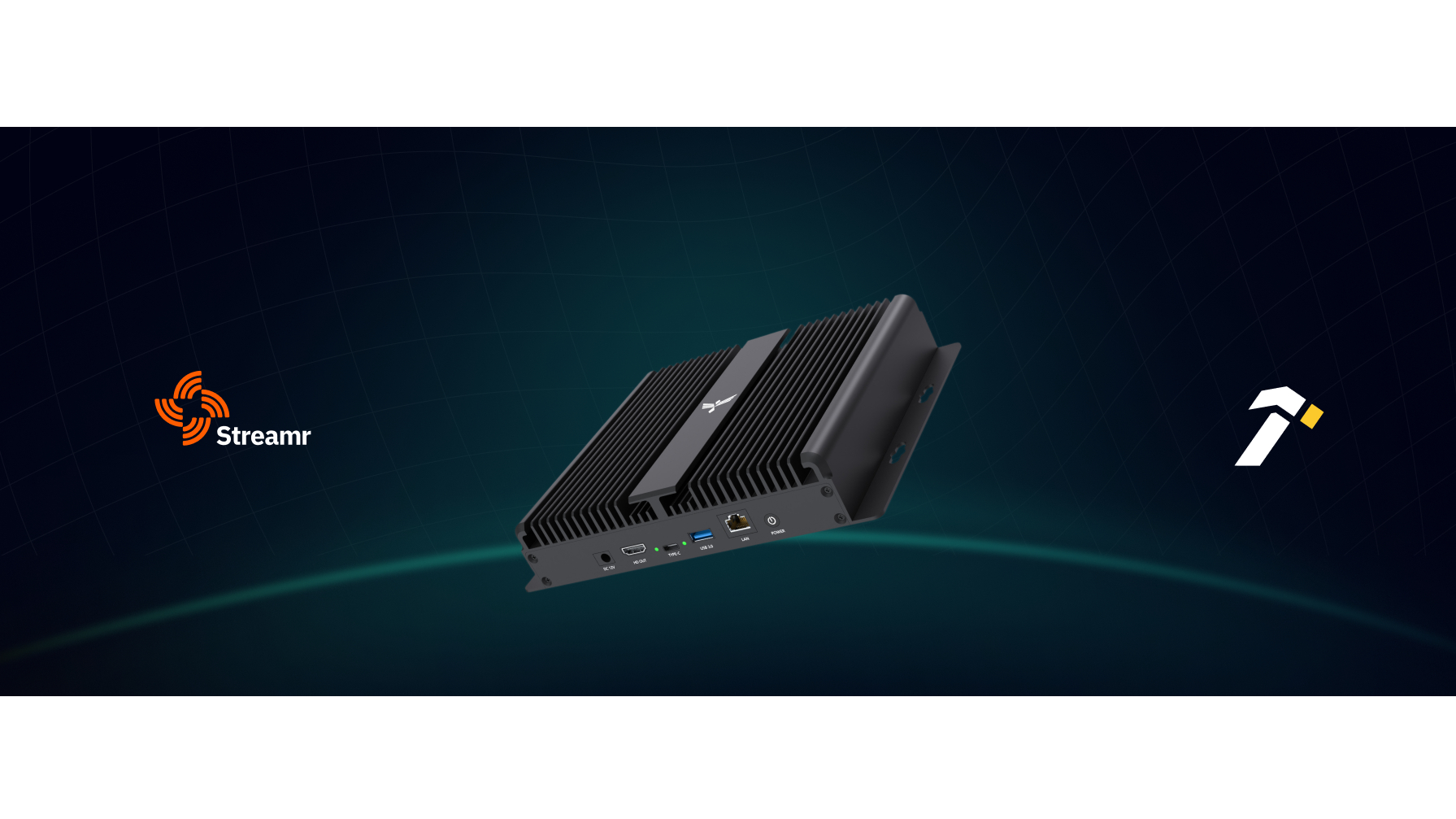
6 months ago
Streamr and JDI Launch Terminal Multi-Miner for Home-Based Crypto Mining
In a significant development for home-based mining, Streamr, a decentralized real-time data network, has partnered with JDI, a leader in decentralized physical infrastructure networks (DePIN). Together, they are launching the Terminal Multi-Miner, a device that combines multi-token mining capabilities with participation in decentralized protocols. This innovative mining solution aims to provide users with a seamless way to engage with DePIN and the decentralized economy from their homes. The Terminal Multi-Miner supports various cryptocurrencies, including $DATA and $ANYONE, and features a modular design that allows for customization and efficiency in mining operations.
The upcoming Terminal T2 model, set to launch in Q1 2025, will enhance the multi-token mining experience by integrating with the Streamr Network. This model will enable users to mine $DATA while contributing to the Streamr protocol, thus simplifying their participation in the ecosystem. The Terminal Multi-Miner is designed to be user-friendly, with plug-and-play functionality that lowers technical barriers, making advanced crypto-mining technology accessible to everyday users. JDI's founder, Yiming Wang, expressed excitement about leveraging Streamr's technology to create a unique mining experience tailored for Web3 users.
Matthew Fontana, CEO of Streamr, emphasized the importance of this collaboration in advancing DePIN and decentralized data networks. By providing an accessible entry point for users to engage with the Streamr Network and other Web3 protocols, they aim to enhance the decentralization and scalability of DePIN, which is crucial for its long-term success. With JDI's proven track record in hardware manufacturing and Streamr's expertise in scalable P2P infrastructure, the Terminal Multi-Miner represents a promising step towards making decentralized physical infrastructure a mainstream reality.
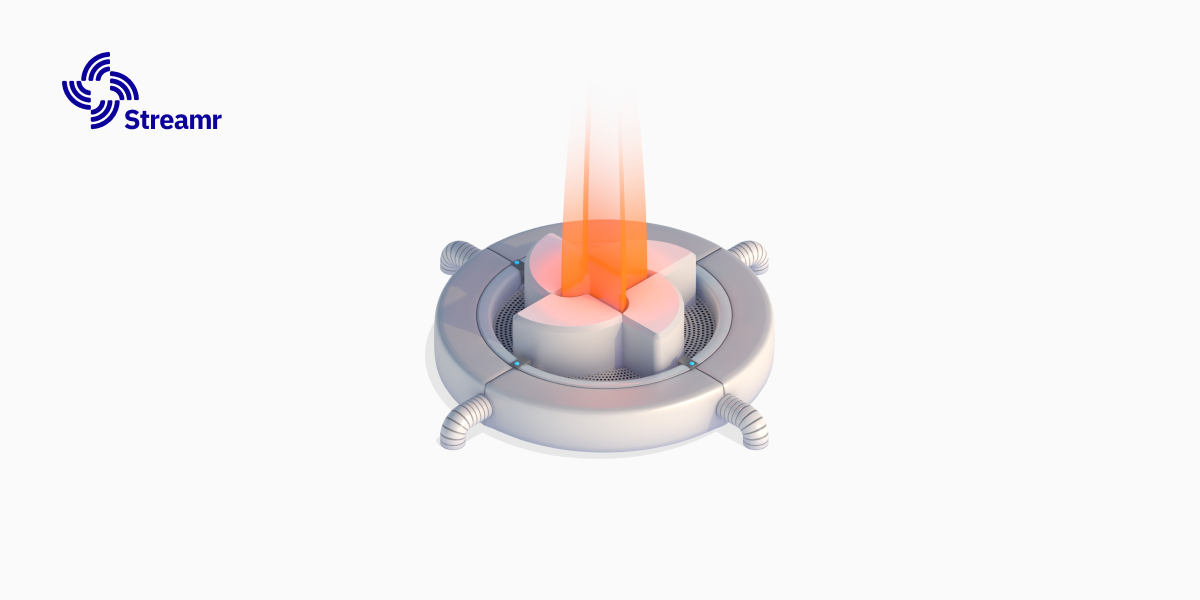
7 months ago
Streamr: Revolutionizing Real-Time Data Streaming in a Decentralized World
Streamr is an innovative decentralized network designed for streaming live media and real-time data securely and at scale. It offers a range of use cases, including AI data delivery, live video streaming, and communication without the need for centralized servers. The platform allows users to stream verifiable data from IoT devices and networked hardware, making it a versatile solution for various industries. Additionally, Streamr facilitates data monetization by enabling users to buy and sell subscriptions to data streams, thus creating a marketplace for real-time data exchange.
The Streamr Network operates on a robust and permissionless peer-to-peer architecture, which enhances its scalability and resilience against malicious attacks. By leveraging companion blockchains such as Ethereum, Gnosis, and Polygon, Streamr ensures secure identity management and payment processing. This decentralized approach addresses the limitations of traditional centralized services, which often suffer from single points of failure and vendor lock-in. With a focus on low latency and secure messaging, Streamr is poised to become a critical infrastructure layer for the emerging decentralized web (Web3).
Founded in 2017 by a team of visionaries, Streamr has grown into a collaborative open-source project with around 30 contributors worldwide. Governance within the project is facilitated through voting mechanisms using the $DATA token, which serves as the backbone of the network. The recent release of the complete $DATA tokenomics marks a significant milestone in the Streamr roadmap, further solidifying its position in the decentralized data ecosystem. Node operators play a crucial role in securing and relaying data streams, while delegators can earn revenue shares by supporting these operators, fostering a community-driven approach to data management.
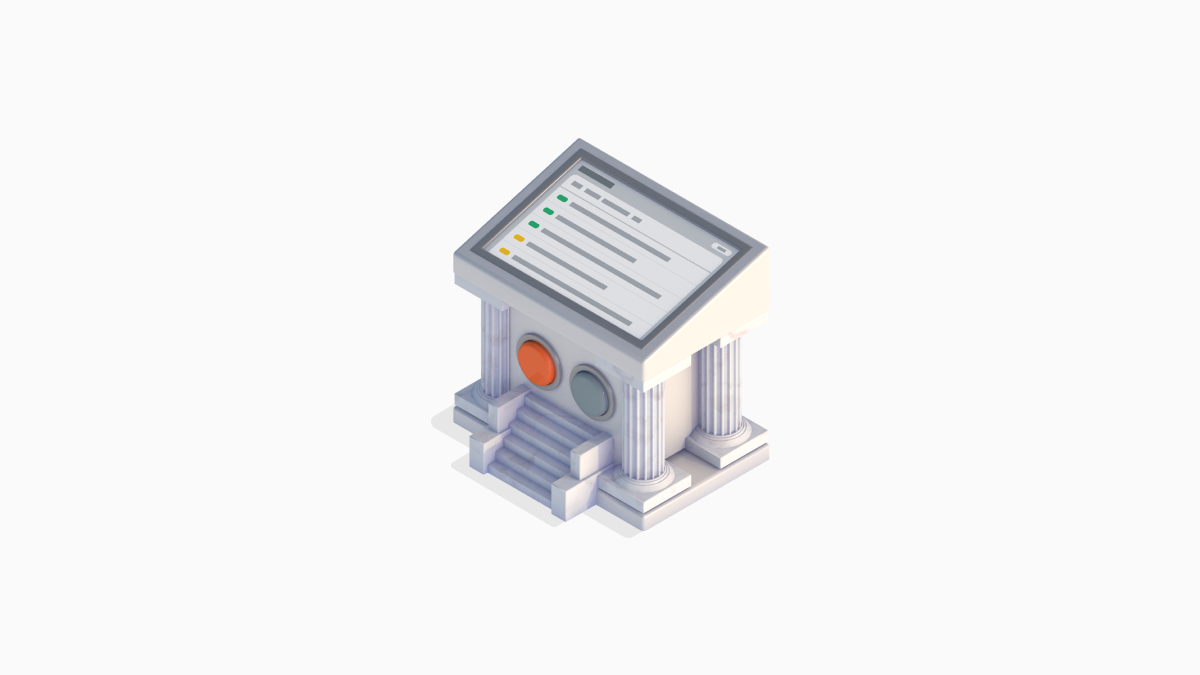
7 months ago
Streamr Reaches 1.0 Mainnet Milestone and Focuses on Protocol Adoption
The Streamr team has reached a significant milestone with the completion of their 1.0 Mainnet, marking the end of their 2017 roadmap. This achievement allows the team to transition from research and development to focusing on full protocol adoption. The overarching goal remains to revolutionize the data streaming landscape through decentralized, peer-to-peer technology. The team has successfully built a feature-complete decentralized publish/subscribe network, incorporating elements such as censorship-resistant messaging, end-to-end encryption, and a robust tokenomics model designed to incentivize operators. However, the journey ahead involves redefining a multi-billion dollar industry dominated by established players, and the team is calling for community support to achieve this vision.
Currently, the Streamr DAO is voting on SIP-22, which proposes to unlock an additional 100 million DATA tokens from reserves to fund ongoing development as existing funds are projected to run out early next year. The current monthly project expenses are around $230,000, with a notable decrease in development costs since the completion of major tech building blocks. The allocation of resources is strategically focused on marketing, protocol development, and operational costs, with the aim of achieving a 30% growth in network usage and diversifying funding sources. The team is also prioritizing the delivery of high-profile use cases, including live video broadcasting, to demonstrate the network's capabilities.
Streamr is actively pursuing commercial adoption across various sectors, including decentralized physical infrastructure networks (DePIN), live video streaming, defense communications, and AI integration. The team has onboarded multiple partners and is exploring innovative use cases that leverage the unique strengths of the Streamr Network. With a focus on enhancing video delivery and establishing secure communication channels for defense applications, Streamr aims to position itself as a leader in decentralized cloud technologies, contributing to a more resilient data management ecosystem. As the community prepares to vote on SIP-22, the team emphasizes the importance of collective participation in shaping the future of the Streamr Network.

8 months ago
Exploring the Role of Decentralized Technologies in Europe's Cloud Sovereignty
A couple of weeks ago, I attended the Nexus Forum in Brussels, where policymakers, researchers, and SMEs gathered to discuss the European Edge Cloud Continuum. This strategic initiative aims to enhance Europe’s capabilities in cloud computing and edge technologies by moving data processing closer to its source. This shift is crucial for achieving faster and more efficient data management, reducing reliance on distant data centers. However, with the European cloud market increasingly dominated by non-EU providers like Amazon, Microsoft, and Google, the EU faces significant challenges in establishing cloud sovereignty and competing on a global scale.
The European Commission (EC) is actively investing in cloud and edge computing to address this imbalance, with ambitious goals such as ensuring that 75% of EU enterprises adopt cloud solutions by 2030. The proposed federated cloud model seeks to combine smaller players, including telecom operators and local services, to create a unified front against global giants. However, fragmentation within the European market complicates this effort. The cloud-edge continuum concept aims to integrate various providers, from large cloud services to small edge nodes, to deliver computing resources closer to where data is generated.
During the forum, I inquired about the role of decentralized technologies like Streamr in this vision. While the EC's roadmap places decentralized technologies at the far end of the cloud-edge continuum, many DePIN projects are already operational today. Streamr, for instance, can serve as a decentralized data backbone, facilitating the integration of various services and enhancing the efficiency of data management. To realize the potential of decentralized solutions in achieving cloud sovereignty, there must be more dialogue between policymakers and innovators, ensuring that these technologies are recognized and integrated into Europe’s strategic framework for the future.
Signup for latest DePIN news and updates